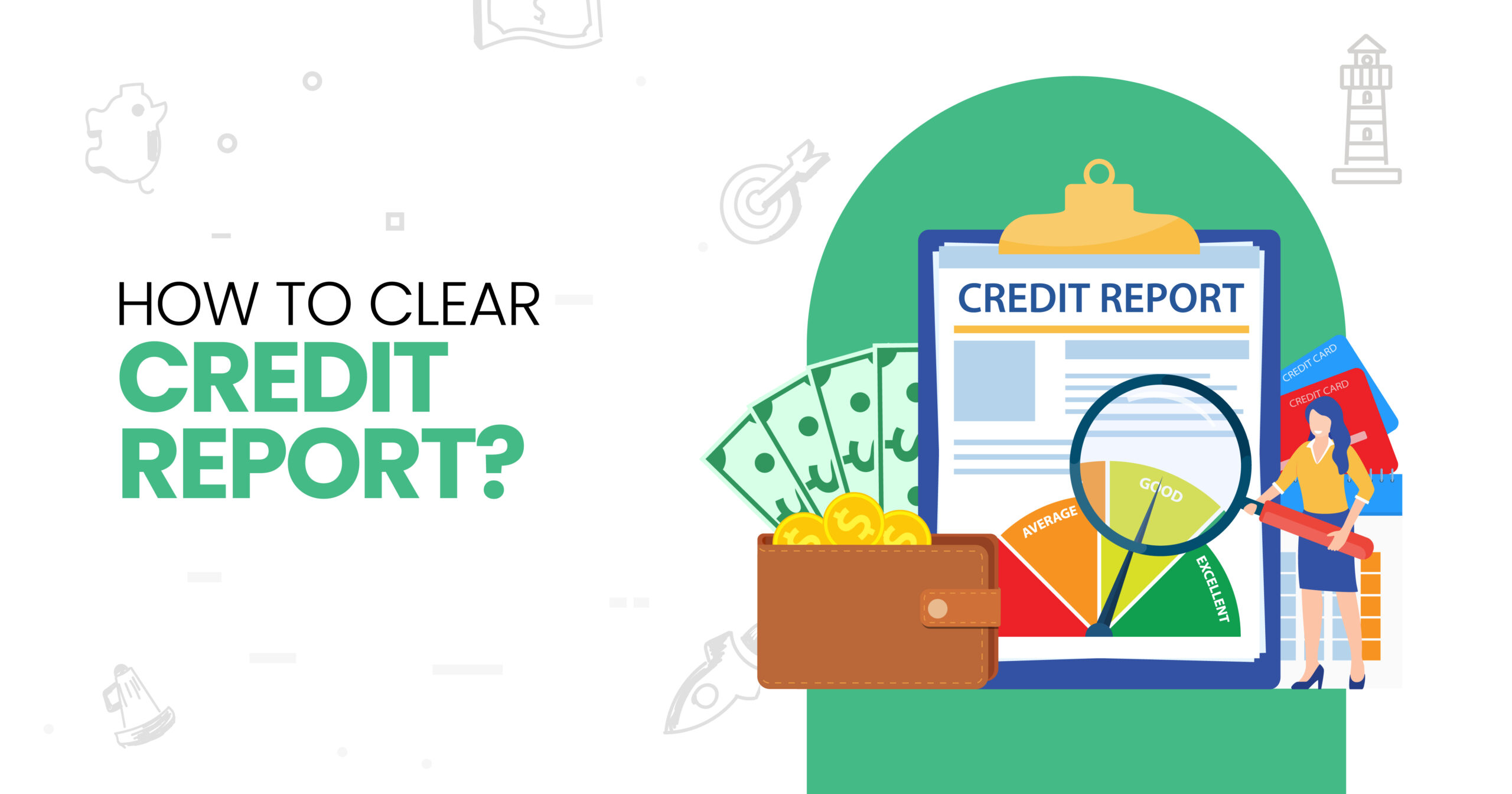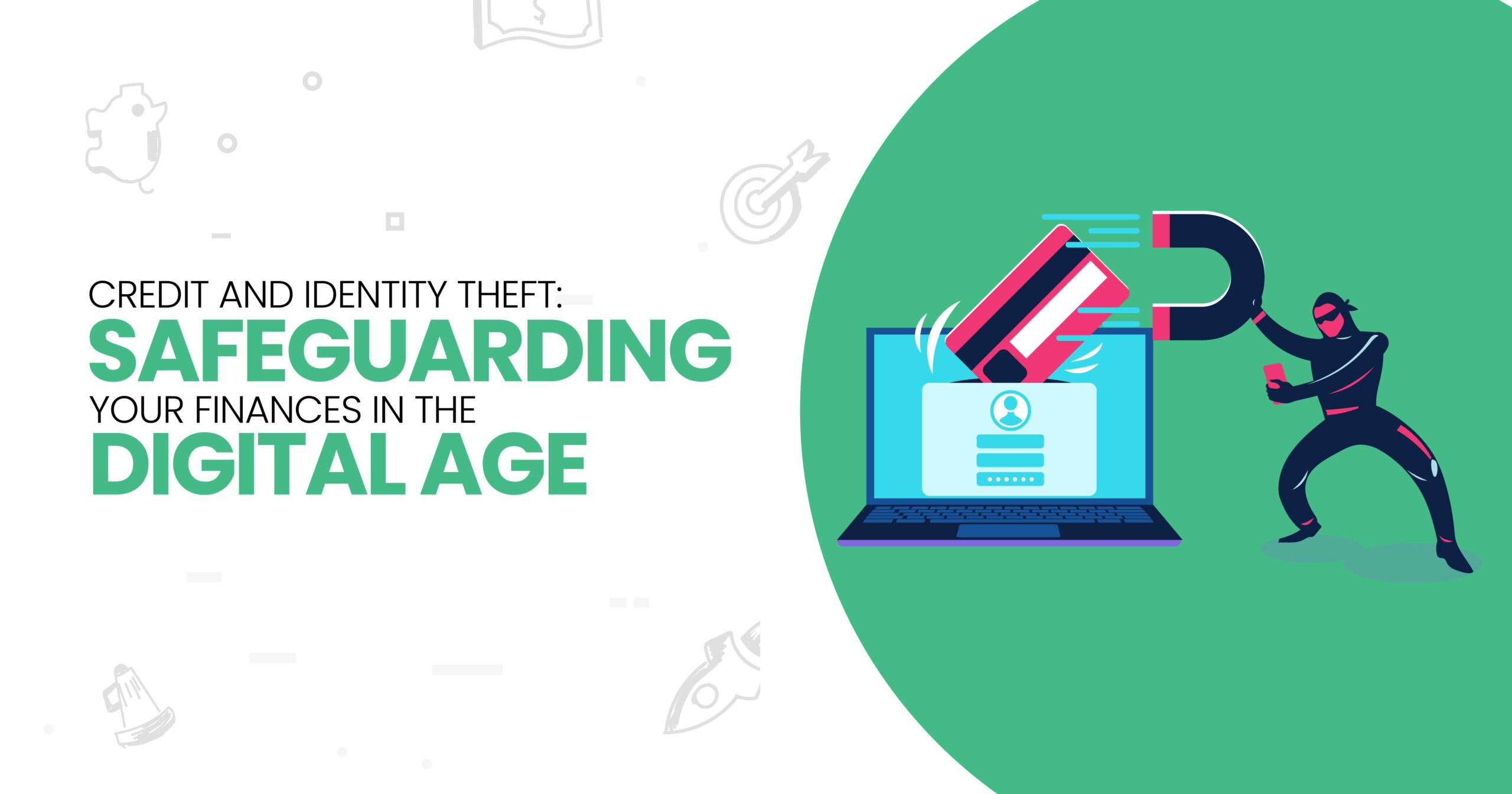Need help? Get in touch!

How To Clear Credit Report?
Your credit report includes personal information such as your name, address, and Social Security number. It is a detailed record of your credit history, credit accounts, payment history, and any outstanding debts. It is also a crucial aspect of your financial health, as it is used by lenders, landlords, and even potential employers to assess your creditworthiness. However, errors on your credit report can negatively impact your credit score and your ability to secure loans or other financial opportunities.
Identifying Errors On Your Credit Report
Errors on your credit report can range from simple mistakes, such as incorrect personal information, to more serious issues, such as accounts that you don’t recognize or outdated information. Here are some common types of errors to look out for when reviewing your credit report:
- Incorrect Personal Information: Check for any inaccuracies in your name, address, Social Security number, or other personal details. Even a small mistake in this information can indicate a more significant problem with your report.
- Accounts You Don’t Recognize: Review the list of credit accounts on your report and ensure that you recognize each one. Look out for any accounts that may have been opened fraudulently in your name.
- Outdated Information: Credit reports should only include your credit history for the past seven to ten years, depending on the type of information. Check for any outdated information that should no longer be on your report.
- Duplicate Accounts: Sometimes, the same account may appear multiple times on your credit report, which can artificially lower your credit score. Look for any duplicate accounts and report them to the credit bureau.
- Incorrect Account Status: Ensure that the status of each account (e.g., open, closed, in collections) is accurate. A mistake in this area can affect your credit score and lenders’ perception of your creditworthiness.
- Inaccurate Payment History: Review the payment history for each account to ensure that it is accurate. Look for any late payments or missed payments that you believe are incorrect.
- Fraudulent Activity: If you suspect you have been a victim of identity theft or fraud, look for any accounts or activity on your credit report that you did not authorize.
Disputing Errors
If you find errors on your credit report, you have the right to dispute them. Disputing errors on your credit report is an essential step in ensuring that your credit history is accurate and up-to-date.
- Obtain a Copy of Your Credit Report: Request a free copy of your credit report from each of the three major credit bureaus: Equifax, Experian, and TransUnion. You are entitled to one free report from each bureau every 12 months.
- Review Your Credit Report: Carefully review your credit report for any inaccuracies, such as incorrect account information, outdated personal information, or accounts that you do not recognize.
- Gather Documentation: Collect any documentation that supports your dispute, such as billing statements, payment records, or correspondence with creditors.
- Dispute the Error: Write a dispute letter to the credit bureau reporting the error. Include your name, address, a description of the error, and any supporting documentation. Be clear and concise in your explanation.
- Send the Dispute Letter: Send your dispute letter to the credit bureau by certified mail with a return receipt requested. This will provide proof that the bureau received your dispute.
- Wait for a Response: The credit bureau is required to investigate your dispute within 30 days of receiving it. They will contact the creditor in question and request verification of the information.
- Review the Results: Once the investigation is complete, the credit bureau will send you the results in writing and a copy of your updated credit report if the dispute was successful.
- Follow-Up if Necessary: If the dispute is not resolved to your satisfaction, you can escalate the matter by contacting the creditor directly or by filing a complaint with the Consumer Financial Protection Bureau (CFPB).
- Monitor Your Credit Report: After the dispute is resolved, continue to monitor your credit report regularly to ensure that the error does not reappear.
Improving Your Credit Score
While you’re in the process of disputing errors on your credit report, there are steps you can take to improve your credit score.
- Pay Your Bills on Time: Payment history is one of the most important factors in calculating your credit score. Make sure to pay all your bills, including credit card bills, loans, and utilities, on time.
- Reduce Your Credit Card Balances: Try to keep your credit card balances low relative to your credit limit. High balances can negatively impact your credit score.
- Limit New Credit Applications: Applying for multiple new credit accounts in a short period can lower your credit score. Only apply for new credit when you really need it.
- Monitor Your Credit Utilization Ratio: Aim to keep your credit utilization ratio (the amount of credit you’re using compared to your total credit limit) below 30%. A lower ratio is better for your credit score.
- Review Your Credit Report Regularly: Check your credit report regularly for errors or fraudulent activity. Dispute any inaccuracies promptly to prevent them from affecting your credit score.
- Use Different Types of Credit: Having a mix of different types of credit accounts, such as credit cards, installment loans, and mortgages, can have a positive impact on your credit score.
- Keep Old Accounts Open: Closing old credit card accounts can shorten your credit history and lower your credit score. Keep these accounts open, even if you’re not using them regularly.
- Consider a Secured Credit Card: If you have trouble getting approved for a traditional credit card, a secured credit card can help you build or rebuild your credit history.
- Be Patient: Improving your credit score takes time. Focus on building positive credit habits, and your score will gradually improve over time.
- Seek Professional Help if Needed: If you’re struggling to improve your credit score on your own, consider seeking help from a credit counseling agency or a financial advisor.
Rebuilding Your Credit
Rebuilding your credit can be a challenging process, especially if you have a history of late payments, defaults, or other negative marks on your credit report. However, with time and effort, you can improve your credit score and regain financial stability. Here are some steps you can take to rebuild your credit:
- Check Your Credit Report: Obtain a copy of your credit report from each of the three major credit bureaus (Equifax, Experian, and TransUnion) and review it for errors or inaccuracies. Dispute any errors you find to ensure that your credit report is up-to-date and accurate.
- Pay Your Bills on Time: Payment history is a key factor in calculating your credit score. Make sure to pay all your bills on time, including credit card bills, loans, and utilities. Consider setting up automatic payments or reminders to help you stay on track.
- Reduce Your Debt: Try to pay down your existing debt, especially high-interest debt like credit card balances. Focus on paying off accounts that are close to their credit limits, as this can improve your credit utilization ratio and positively impact your credit score.
- Use Credit Responsibly: If you have a credit card, use it responsibly by keeping your balances low and paying off your balance in full each month. Avoid maxing out your credit cards, as this can negatively impact your credit score.
- Consider a Secured Credit Card: If you have trouble getting approved for a traditional credit card, consider applying for a secured credit card. A secured credit card requires you to make a security deposit, which serves as your credit limit. By using a secured credit card responsibly, you can rebuild your credit over time.
- Become an Authorized User: If you have a friend or family member with a good credit history, consider asking them to add you as an authorized user on one of their credit cards. This can help you build your credit history and improve your credit score.
- Monitor Your Credit Score: Keep an eye on your credit score regularly to track your progress. You can use free credit monitoring services or check your score through your credit card issuer or bank.
- Be Patient: Rebuilding your credit takes time, so be patient and stay committed to improving your financial habits. Focus on building positive credit behaviors, and your credit score will gradually improve over time.
Monitoring Your Credit Report
Even after you have cleared your credit report of errors, it’s important to continue monitoring it regularly. This can help you catch any new errors or fraudulent activity early on. There are several tools and services available that can help you monitor your credit report and alert you to any changes.
Conclusion
Rebuilding your credit is a gradual process that requires patience and diligence. You can improve your credit score by checking your credit report for errors, paying your bills on time, reducing your debt, and using credit responsibly. Consider options like a secured credit card or becoming an authorized user to help rebuild your credit. Monitor your credit score regularly and be patient, as rebuilding your credit takes time. You can successfully rebuild your credit and improve your overall financial health with perseverance and responsible financial habits.
related post
- Located in Pembroke Pines, FL
- FICO is a registered trademark of Fair Isaac Corporation in the United States and other countries. Pines Credit Pros does not offer legal advice and is not a substitute for legal services. Pines Credit Pros does not guarantee the permanent removal of verifiable tradelines or make promise(s) of any particular outcome whatsoever. Pines Credit Pros requires active participation from its clientele regarding requested documents and information, including investigation results, for the sought-after outcome of a healthy, accurate credit report. Individual results may vary.






